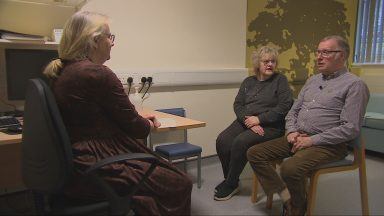Court sentencing in Scotland should take account of evidence the brain does not fully mature until at least age 25, according to a new report.
The Scottish Sentencing Council (SSC) asked Edinburgh University to carry out a review of the current neurological, neuropsychological, and psychological evidence on the cognitive maturity of younger people.
The findings confirm the adolescent brain continues to develop into adulthood and does not reach full maturity until approximately age 25-30.
The SSC commissioned the research to inform its development of a new guideline for sentencing young people, a draft version of which is due to be published shortly.
A senior SSC figure said the point at which the brain of a young person is entirely developed and fully able to regulate behaviour is important for sentencing as it relates to the level of blame for the offence involved.
The review, understood to be the first of its kind in the Scottish context, found areas of the brain governing emotion develop sooner than those which assist with cognitive abilities and self-control.
Researchers said this imbalance explains the increased risk-taking and emotionally-driven behaviour commonly attributed to young people.
Additional factors which may delay or hinder brain development include mental health issues, adverse childhood experiences, traumatic brain injury (TBI), and alcohol and drug use.
This means the nature of brain development in the transition to adulthood is often at the root of the risk-taking behaviour which can cause further damage to the already vulnerable younger brain.
The review highlights a “well-established correlation” between TBI, antisocial behaviour and violent offending.
Overall, the review found the younger brain is less well-equipped to enable good life choices and exert self-control, and is disproportionately vulnerable to the factors which can compound these problems.
The research concludes there is a strong case for considering cognitive maturity in judicial decision-making up to at least age 25.
Sheriff principal Ian Abercrombie QC, chairman of the SSC’s Sentencing Young People Committee, said: “This is a highly significant piece of research and we would like to express our gratitude to the University of Edinburgh for carrying out this work.
“The point at which the brain is fully developed and people are able to better regulate their behaviour is an important consideration for sentencing as it relates to the level of culpability, or blame, for the offence in question.
“It has been well established practice in Scottish courts that young people are not deemed as culpable for their offending behaviour as adults are.
“This research will no doubt add to the debate around how the criminal justice system in Scotland deals with young people who offend.”
The SSC plans to hold a public consultation once the draft guideline for sentencing young people is published.
Follow STV News on WhatsApp
Scan the QR code on your mobile device for all the latest news from around the country






























